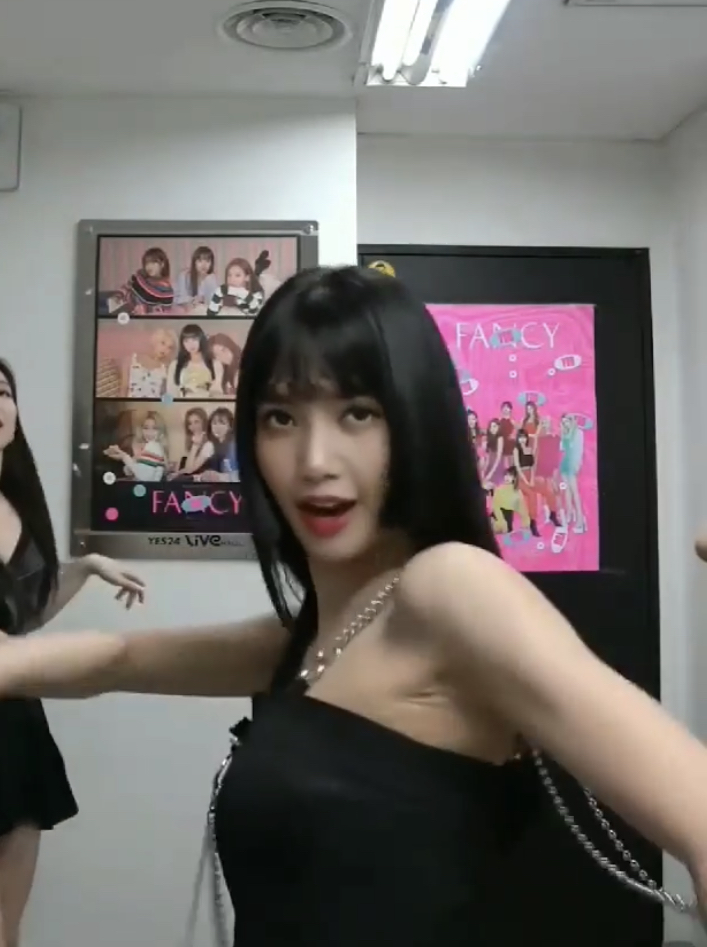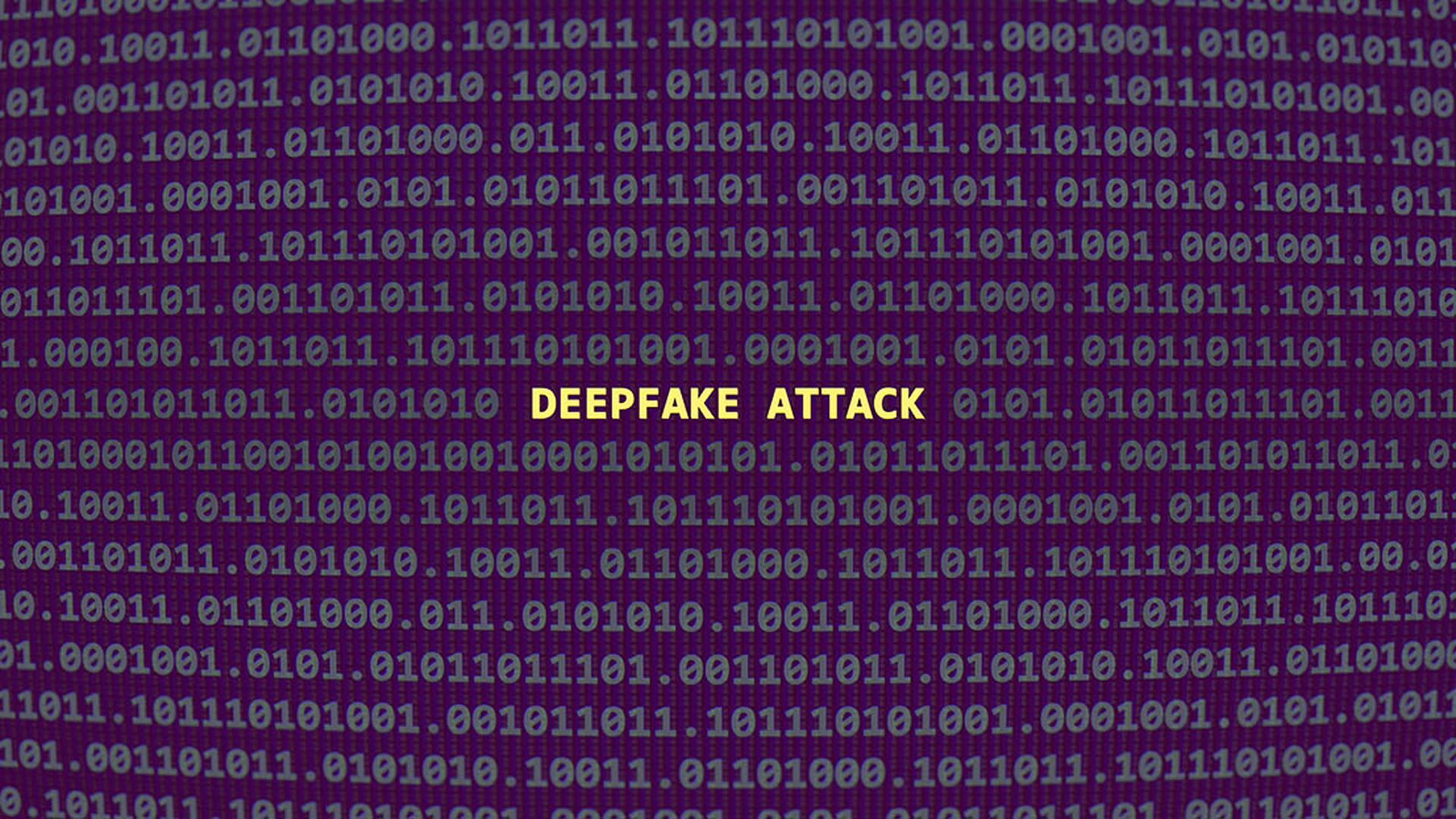Hey there, music lovers and tech enthusiasts! Brace yourself because we're diving headfirst into the wild world of Kpop deepfake. Imagine your favorite Kpop idols performing a hit single, but wait—there's a twist. These performances might not be 100% real. That's right, folks. Deepfake technology is changing the game, and it's already making waves in the music industry. So, buckle up because we're about to uncover the magic, mystery, and potential controversies surrounding this groundbreaking phenomenon.
Let's get real for a moment. If you're reading this, chances are you've heard whispers about deepfake technology floating around the internet. But what happens when it collides with the high-octane world of Kpop? The result is nothing short of extraordinary. Kpop deepfake is not just about creating realistic virtual performances; it's about redefining the boundaries of creativity and entertainment. Stick around, because this is going to be one heck of a ride!
Now, before we dive deeper into the nitty-gritty details, let's set the stage. The Kpop industry has always been a trailblazer when it comes to innovation and pushing boundaries. With deepfake technology entering the scene, we're witnessing a new era where virtual and reality blur into one seamless experience. But is this trend here to stay, or is it just a fleeting moment in the grand scheme of things? Let's find out together!
Read also:Riley Mae Lewis Onlyfans Leaked The Untold Story You Need To Know
What Exactly is Kpop Deepfake?
In simple terms, Kpop deepfake refers to the use of advanced AI technology to create realistic digital representations of Kpop idols. These deepfakes can range from virtual performances to entirely new music videos, all crafted using artificial intelligence. The term "deepfake" itself comes from the combination of "deep learning" and "fake," highlighting the process of using machine learning algorithms to generate hyper-realistic content.
Deepfake technology has been around for a while, but its application in the Kpop industry is relatively new. Imagine your favorite idol performing a song they've never recorded or appearing in a music video that doesn't actually exist. Sounds crazy, right? But that's the power of deepfake technology, and it's reshaping the way we consume music and entertainment.
So, why is Kpop deepfake such a big deal? Well, it's not just about creating cool visuals. It's about expanding the possibilities for artists, producers, and fans alike. With deepfake, the sky's the limit. Artists can explore new creative avenues, and fans can enjoy content that feels personal and tailored to their preferences. But, as with any new technology, there are challenges and ethical concerns to consider. Let's unpack them in the next section.
The Impact of Kpop Deepfake on the Industry
Revolutionizing Music Production
Kpop deepfake is shaking up the music production landscape in ways we couldn't have imagined. Traditionally, producing a music video or live performance required a significant investment of time, money, and resources. With deepfake technology, much of that process can be streamlined, allowing for faster and more cost-effective content creation.
- Reduced Production Costs: Creating virtual performances eliminates the need for elaborate sets, costumes, and travel expenses.
- Increased Creativity: Artists can experiment with different styles and concepts without the constraints of traditional production methods.
- Global Reach: Deepfake technology enables Kpop idols to reach fans worldwide without physically traveling, making international collaborations easier than ever.
But it's not just about saving money or boosting creativity. Kpop deepfake is also democratizing the music industry, giving smaller artists and independent creators access to tools that were once reserved for big-name stars. This level playing field is a game-changer, empowering more voices to be heard in the global music scene.
Changing the Fan Experience
Fans play a crucial role in the success of any Kpop artist, and deepfake technology is enhancing that relationship in exciting ways. Imagine being able to interact with your favorite idol in a virtual space, attend personalized concerts, or even co-create content with them. These possibilities are no longer science fiction; they're becoming a reality thanks to deepfake technology.
Read also:Astrid Wett Nudes The Truth Behind The Clickbait Debunked
However, with great power comes great responsibility. As the line between real and virtual content blurs, it's essential for artists and producers to maintain transparency with their fans. Trust is key in the fan-artist relationship, and any misuse of deepfake technology could lead to backlash and damage reputations. It's a delicate balance, but one that, if handled correctly, can lead to incredible growth and innovation.
Biography of Key Figures in Kpop Deepfake
Meet the Pioneers
Behind every great movement is a group of trailblazers who dared to challenge the status quo. In the world of Kpop deepfake, several key figures have emerged as pioneers, pushing the boundaries of what's possible with this technology. Here's a quick look at some of the individuals and companies leading the charge:
| Name | Role | Company | Notable Achievements |
|---|---|---|---|
| Jin Soo Kim | AI Developer | DeepMusic | Created the first AI-generated Kpop music video |
| Emily Park | Producer | Virtual Star | Produced the viral "Virtual Idol Concert" series |
| Choi Min Ho | Artist Manager | Future Entertainment | Introduced deepfake performances to international audiences |
These individuals and their teams are at the forefront of the Kpop deepfake revolution, and their contributions are shaping the future of the industry. By combining their expertise in technology, music, and entertainment, they're creating a new era of innovation that's capturing the imagination of fans worldwide.
Technical Aspects of Kpop Deepfake
How Does Deepfake Technology Work?
Deepfake technology relies on a combination of machine learning algorithms, neural networks, and large datasets to create realistic digital content. Here's a simplified breakdown of the process:
- Data Collection: Gathering a vast amount of visual and audio data to train the AI model.
- Training the Model: Using the collected data to teach the AI how to replicate human-like movements, expressions, and voices.
- Content Creation: Generating new content by applying the trained model to create virtual performances, music videos, or even entire albums.
While the technical aspects may sound complex, the end result is surprisingly seamless. The key to successful deepfake content lies in the quality of the data used and the expertise of the developers behind the scenes. As the technology continues to evolve, we can expect even more impressive feats in the future.
Challenges in Implementing Deepfake Technology
Despite its potential, deepfake technology is not without its challenges. Here are some of the hurdles that developers and producers face when working with Kpop deepfake:
- Accuracy: Ensuring that the generated content accurately reflects the original artist's style and persona.
- Legal Issues: Navigating the complex landscape of copyright laws and permissions when using real artists' likenesses.
- Ethical Concerns: Addressing the potential for misuse and ensuring that deepfake content is used responsibly and transparently.
These challenges require a collaborative effort from all stakeholders in the industry to ensure that deepfake technology is used in a way that benefits everyone involved. By establishing clear guidelines and best practices, we can harness the power of deepfake while minimizing its risks.
The Future of Kpop Deepfake
Trends to Watch
As deepfake technology continues to evolve, we can expect to see some exciting trends emerge in the Kpop industry. Here are a few to keep an eye on:
- Virtual Concerts: More artists will embrace virtual performances, allowing fans from all over the world to enjoy live shows without leaving their homes.
- Interactive Content: Fans will have the opportunity to co-create content with their favorite idols, leading to more personalized and engaging experiences.
- AI-Generated Music: Deepfake technology will play a role in creating entirely new music compositions, expanding the creative possibilities for artists.
These trends highlight the potential for deepfake technology to transform the Kpop industry in meaningful ways. By embracing these changes, artists and producers can stay ahead of the curve and continue to captivate their audiences.
Predictions for the Next Decade
Looking ahead, the next decade promises to be an exciting time for Kpop deepfake enthusiasts. Here are a few predictions for what we might see in the coming years:
- Increased Adoption: More artists and production companies will adopt deepfake technology as part of their creative process.
- Enhanced Fan Engagement: Virtual and augmented reality will play a bigger role in fan-artist interactions, creating immersive experiences that feel more real than ever.
- Global Expansion: Kpop deepfake will help the genre reach even wider audiences, breaking down language and cultural barriers.
While the future is always uncertain, one thing is clear: Kpop deepfake is here to stay, and it's going to shape the industry in ways we can only begin to imagine.
Addressing Ethical Concerns
The Importance of Transparency
As with any emerging technology, ethical concerns surrounding Kpop deepfake are valid and need to be addressed. Transparency is key when it comes to building trust with fans and ensuring that deepfake content is used responsibly. Here are a few steps that artists and producers can take to promote transparency:
- Clearly Labeling Content: Make sure that fans know when they're watching a deepfake performance or music video.
- Respecting Artists' Rights: Obtain proper permissions and ensure that artists have control over how their likenesses are used.
- Engaging with Fans: Encourage open dialogue with fans about the use of deepfake technology and its implications.
By prioritizing transparency, the Kpop industry can set a positive example for others to follow and ensure that deepfake technology is used in a way that benefits everyone involved.
Preventing Misuse
Another critical aspect of addressing ethical concerns is preventing misuse of deepfake technology. Here are some strategies to mitigate potential risks:
- Implementing Strict Guidelines: Establishing clear rules and regulations for the use of deepfake technology in the industry.
- Collaborating with Experts: Working with legal and ethical experts to ensure compliance with relevant laws and standards.
- Monitoring and Enforcement: Regularly reviewing and enforcing guidelines to ensure that deepfake content is used responsibly.
These measures will help safeguard the integrity of the Kpop industry and protect both artists and fans from potential harm.
Conclusion
And there you have it, folks! Kpop deepfake is more than just a trend; it's a game-changer that's reshaping the music industry as we know it. From revolutionizing music production to enhancing fan experiences, the possibilities are endless. But with great power comes great responsibility, and it's up to all of us—artists, producers, and fans—to ensure that this technology is used in a way that benefits everyone.
So, what's next? If you're as excited about Kpop deepfake as we are, why not leave a comment below and share your thoughts? Or better yet, check out some of the incredible deepfake content already out there and see for yourself how it's changing the game. The future of music is here, and it's more exciting than ever!
Table of Contents:


